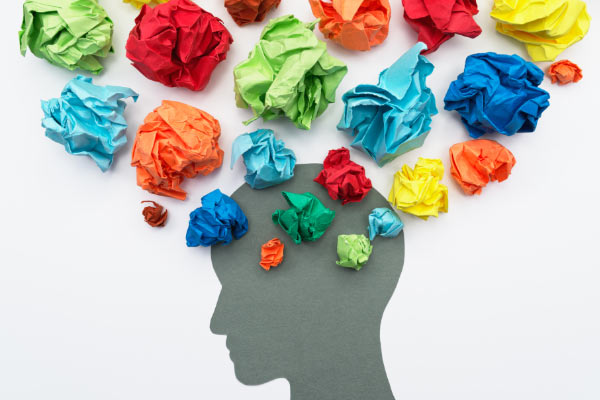Understanding addiction and why it happens is the most critical step when facing drug or alcohol use. Many people do not realize that addiction is a disease of the mind and emotions. It is not a failing of self-will or bad interests and behavior. When someone gets addicted to a drug or drink, they use the substance to self-medicate. Therefore, addicts and alcoholics suffer long before they start using, depending on, and needing a substance to cope with their lives. The research has also established several attributes on who is more likely to get addicted to drugs/alcohol, and poor mental health is one of the predisposing factors.
Why Is Addiction Related to Mental Health?
Simply put, when someone references’ mental health’ concerning addiction, they describe the stability of the individual’s state of mind. For example, has the person experienced abuse, trauma, neglect? Also, mental health refers to whether or not the person has a psychological imbalance in hormones or other brain chemicals that affect mood, behaviors, and emotions. The experts who study addiction now know that the reward center in the brain gets modified negatively from the drugs themselves. The reward center is a brain region that allows us to enjoy eating chocolate, watching a great movie, music, sex, and other rewarding experiences. Once the chemicals impact the reward center in drugs, their mental health suffers, and they cannot feel happy without substances. “The mind is a product of the working brain, and all mental processes (such as memory, cognition, learning, emotions, behavior, love, and empathy) have a neural basis.” (NIH)
More on The Reward Center and Addiction
Drugs’ effects on the brain’s reward center change how and to what degree a person can experience joy and pleasure. Drug use and addiction are a double edge sword. For example, a cocaine addict uses cocaine to feel more awake and confident. The cocaine then alters the normality of the reward center, and the person after some use of cocaine will not be able to feel joy on their own, and even worse, after prolonged use, the cocaine will not provide it either. The reward pathway triggers the release of Dopamine, which is the chemical that makes a person feel good and re-enforces the drive for more to feel better or differently.
What Scientists Say About Addiction and Mental Health
The National Center for Biotechnology Information advances science and health provide an expert study about the reward pathway, Dopamine, and why it causes addiction because of the effects of the drugs on that region, leading to cravings and repeated use.
“While the importance of certain circuits, such as the mesocorticolimbic dopamine pathway [reward pathway], are well established in drug use for reward, recent studies using genetics-based tools have revealed functional changes throughout the reward circuitry that contribute to different facets of addiction, such as relapse and craving.” (NCBI)
How Do Addictions Affect Mental Health?
Since drugs negatively affect the reward pathway and weaken it so to say, someone who is using drugs will not be able to feel better the longer they use drugs attempting to do so. The mental health of people who have essentially damaged their brains is exceptionally poor. Most drug addicts and alcoholics will have depression and anxiety and may even develop more serious mental health disorders such as schizophrenia. The physiological effects of drugs on the brain can return to normal but only after prolonged abstinence and ongoing in-depth therapy and emotional support.
Why Does Therapy Help A Persons Brain?
The reward pathway does re-calibrate once the drugs are gone after some time. The person’s mind can heal, and even more positively can be helped with psychotherapy. The National Institutes of Health support therapy for improving brain function.
“Psychotherapy produces long-term changes in behavior, by producing changes in gene expression that alter the strength of synaptic connections and structural changes that alter the anatomical pattern of interconnections between nerve cells of the brain.” (NIH)
Evoke Wellness In Massachusetts Provides Mental Health Therapy for Addiction
Our evidence-based programs are based on addiction research and rely on proven behavioral therapy methods and in-depth counseling that helps the newly recovering addict re-learn how to feel good. Our cognitive-behavioral therapists help each patient gradually re-train their thoughts and emotional responses to assist their brain in recovering. Evoke Wellness at Cohasset also utilizes holistic therapy methods that allow for self-soothing skills and awareness, such as meditation and yoga, that every patient can continue to engage in after they leave treatment. Call now to let us help you help your own mind begin the needed repairs and recovery through counseling and emotional support and say goodbye to addiction once and for all.




